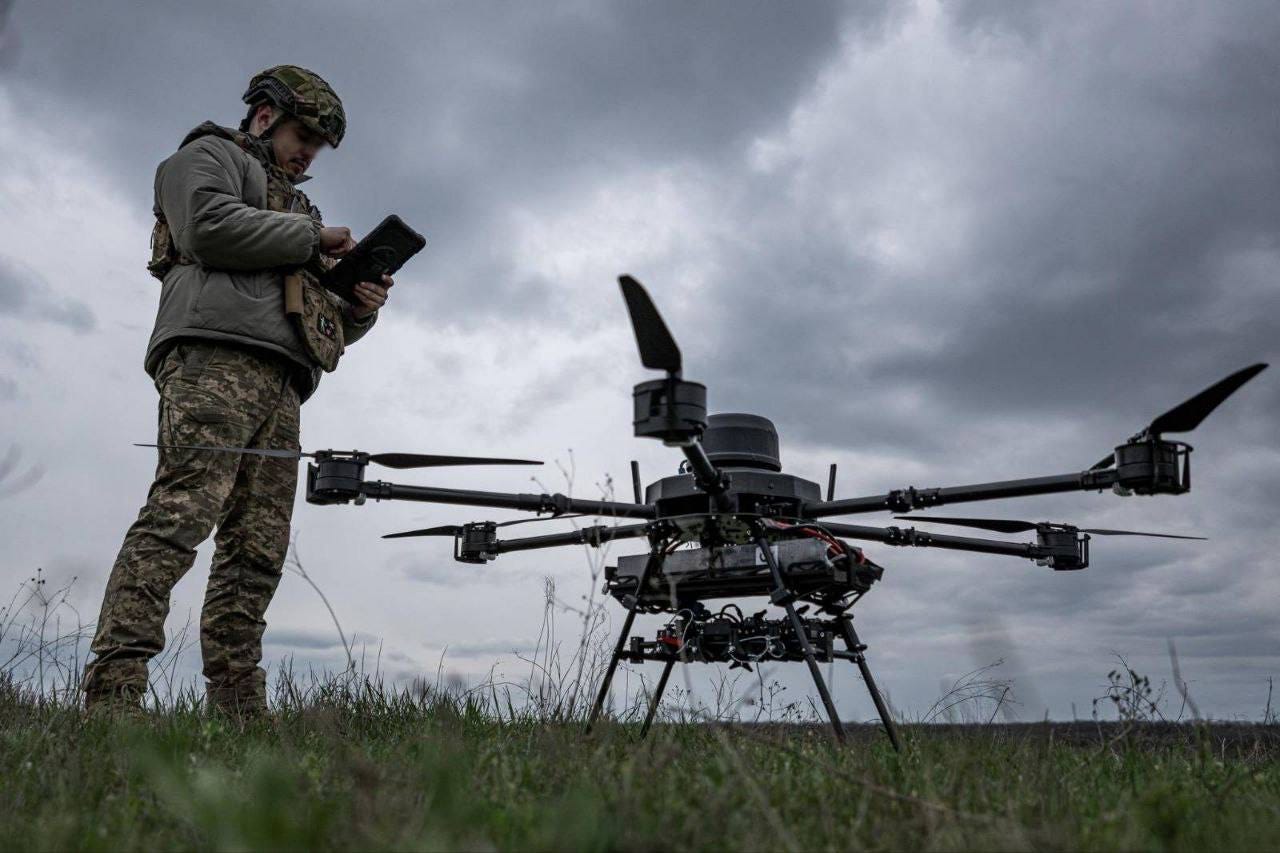Matt Gurney: The next war isn't going to look like what you expect
And we are not ready for it. Our enemies might be, though.
By: Matt Gurney
Regular readers here will know that I love Star Trek, and often quote from it. But I usually do that with tongue-in-cheek, or for playful reasons. But I’m actually going to start today’s column with a quote that is all too serious. It’s from Star Trek: The Next Generation, when the character of Jean-Luc Picard, captain of the Enterprise, played by the terrific British actor Patrick Stewart, confesses his fears to a friend during a moment of doubt. A new, powerful enemy, with weapons and technology far beyond that available to Picard’s crew, has launched a genocidal invasion. There doesn’t seem to be any way to stop them, and Picard comments to one of his oldest friends, played by American actress Whoopi Goldberg, “I wonder if Emperor Honorius, watching the Visigoths come over the seventh hill, truly realized that the Roman Empire was about to fall.”
I won’t go into any more detail about the episode or the plot. (It’s also not quite true to Roman history, but that’s another issue.) But that line has stuck with me throughout the years. Before I embarked on the guaranteed path to fame and fortune that is a media career, I trained as a historian. And I have always been very mindful of the truth behind that snatch of dialogue. People who live through wrenching changes in history may not realize it at the time. Sometimes, history only becomes clear in hindsight.
This all was rattling around my brain last week as I rode a Via train home to Toronto from Ottawa. I had been in the capital for a day to take in CANSEC, an annual trade show and security conference. I was only able to stay for one of the two days, unfortunately, due to my own personal commitments on the home front. (Thank you to the organizers for inviting me.) What I saw on that day was enough to leave me unsettled.
The next war isn’t going to look like what you expect. And I am wondering, in much the same way that fictional Starfleet captain did, if we are living through one of those historical pivot points without fully realizing it.
First, let me tell you a little bit about what I saw at the trade show. To set the scene for readers who have never attended, it’s put on in a big convention centre. Companies from around the world — including a great many here at home — which produce defence technology or anything that could be useful to defence, open up booths and hawk their wares. For a military nerd like me, it’s a lot of fun.
This was my first CANSEC, but I have been to plenty of other defence trade shows, and as I walked the floor, I was struck by something. Most of the exhibits were not for weaponry, at least as you normally think of it. Most of the exhibits were for various bits of highly sophisticated electronics.
I’m not saying that there weren’t weapons, either presented in full or in safe-for-display mock-ups. There were. There were scale models of larger aircraft and ships, and many other bits of tactical gear — clothing, medical technology, radios, and the like. You could climb into armoured vehicles that were parked on the floor or in the parking lot. All the stuff you would expect to see with a well-equipped modern Western soldier as they head off to battle.
But I was genuinely surprised — and probably shouldn’t have been, since I theoretically know better — by how much of what was on display had nothing to do with traditional weaponry as we’ve known it. I was particularly struck by how much was technology useful for autonomous weapons, surveillance and observation, and the control such systems. I’m talking telescopic lenses, sophisticated camera systems, miniaturized sensors of all kinds, drones and drone components, and ruggedized computer and display equipment that would allow these tools to be operated remotely in the field.
And that’s when that thought first occurred to me: we may have already slipped into a new era, because the next war won’t look like what you expect it to look like.


